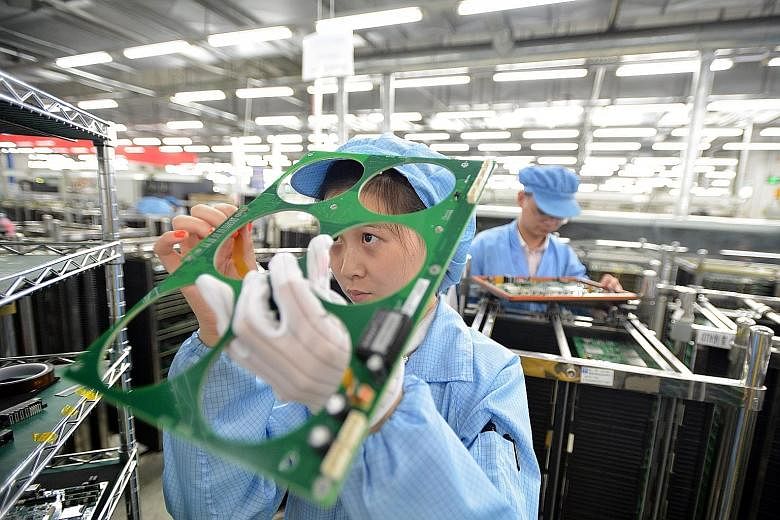BEIJING • Producer prices in China fell to a near six-year low last month while consumer inflation remained subdued, signalling the world's second-largest economy was still facing deflationary pressures and that Beijing has room to further support the sluggish economy.
The producer price index (PPI) fell 5.4 per cent from a year earlier, the National Statistics Bureau said yesterday, compared with an expected 5 per cent decline.
It was the worst reading since October 2009 and the 40th straight month of price falls.
The index, which tracks the factory-gate selling prices of firms from miners to manufacturers, pointed to persistent weakness in commodity prices and soft demand in China's economy, which are eroding company profits.
An official factory survey last week showed deteriorating conditions forced companies to cut staffing for the 21st straight month, and manufacturers had to reduce selling prices to a six-month low due to increasing competition.
In line with sluggishness in the broader economy, annual consumer inflation stayed muted - despite surging pork prices - at 1.6 per cent, slightly higher than a 1.5 per cent estimate, and up from June's 1.4 per cent.
The data showed pork price inflation was most buoyant last month, with prices surging 16.7 per cent due to a sharp fall in hog supplies.
Pork prices are an important component of China's consumer price index basket - the weighting of which is a secret - though some economists estimate that food accounts for as much as 30 per cent of the index.
But economists do not believe higher pork prices alone will derail further policy easing in coming months, as Beijing fights to meet this year's 7 per cent growth target.
HSBC said in a recent research note that it still expects another 25- basis-point (bps) interest rate cut in the second half of this year, and a 200-bps cut in banks' required reserve ratio (RRR). The central bank has already cut interest rates four times since November and lowered the RRR for big banks by 150 bps.
A private survey last week showed factory activity in China shrank the most in two years last month, and a raft of data this week is expected to indicate renewed weakness in China's economy.
Despite the easy-money environment, industrial profits dropped in June on falling prices, while banks saw a surge in bad loans for the first half. Compounding the grim picture, panic selling in Chinese shares earlier in the month has rattled business and consumer confidence, though unprecedented government support measures have stemmed the rout for now.
REUTERS

